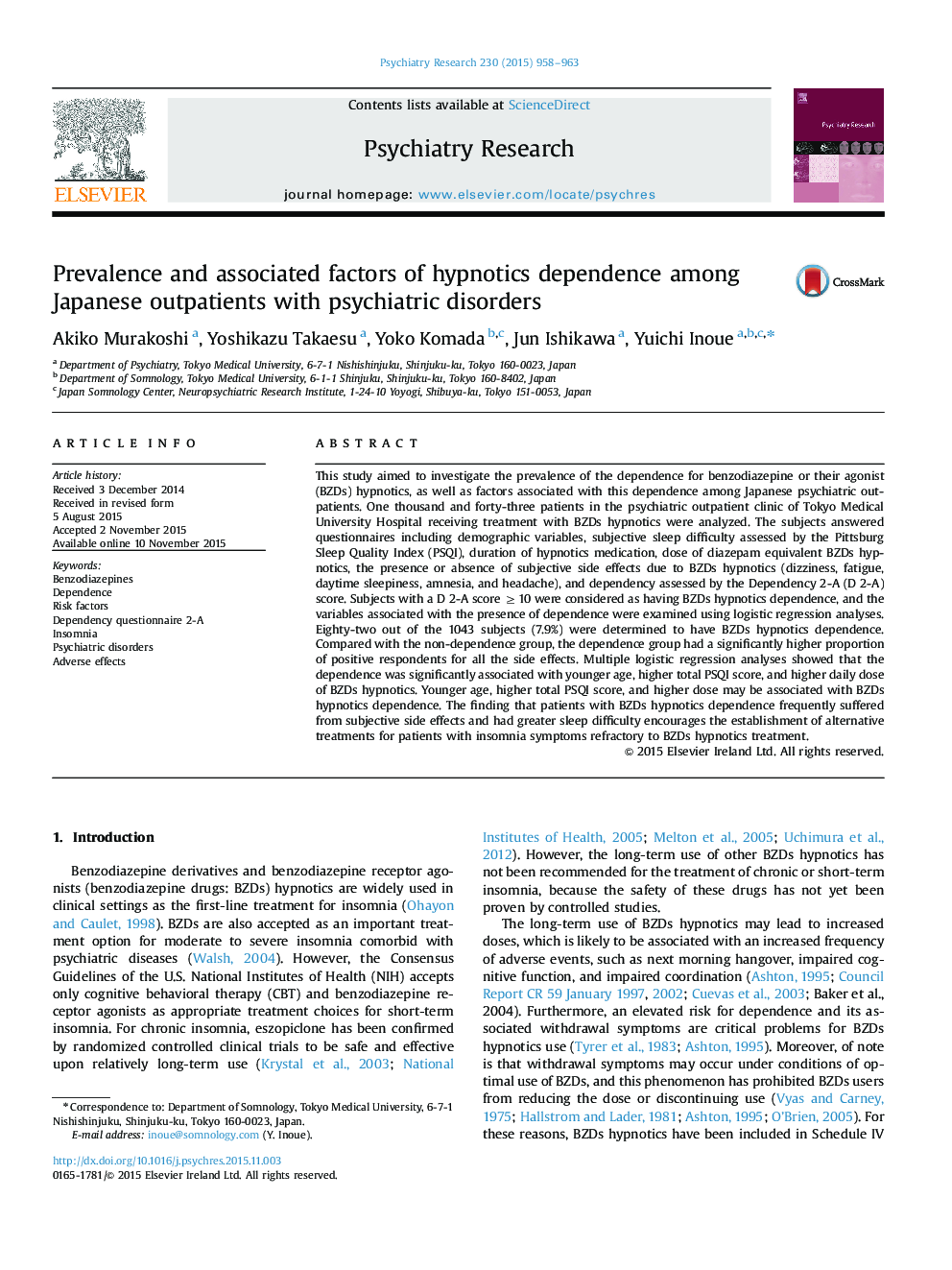| Article ID | Journal | Published Year | Pages | File Type |
|---|---|---|---|---|
| 6813942 | Psychiatry Research | 2015 | 6 Pages |
Abstract
This study aimed to investigate the prevalence of the dependence for benzodiazepine or their agonist (BZDs) hypnotics, as well as factors associated with this dependence among Japanese psychiatric outpatients. One thousand and forty-three patients in the psychiatric outpatient clinic of Tokyo Medical University Hospital receiving treatment with BZDs hypnotics were analyzed. The subjects answered questionnaires including demographic variables, subjective sleep difficulty assessed by the Pittsburg Sleep Quality Index (PSQI), duration of hypnotics medication, dose of diazepam equivalent BZDs hypnotics, the presence or absence of subjective side effects due to BZDs hypnotics (dizziness, fatigue, daytime sleepiness, amnesia, and headache), and dependency assessed by the Dependency 2-A (D 2-A) score. Subjects with a D 2-A score â¥10 were considered as having BZDs hypnotics dependence, and the variables associated with the presence of dependence were examined using logistic regression analyses. Eighty-two out of the 1043 subjects (7.9%) were determined to have BZDs hypnotics dependence. Compared with the non-dependence group, the dependence group had a significantly higher proportion of positive respondents for all the side effects. Multiple logistic regression analyses showed that the dependence was significantly associated with younger age, higher total PSQI score, and higher daily dose of BZDs hypnotics. Younger age, higher total PSQI score, and higher dose may be associated with BZDs hypnotics dependence. The finding that patients with BZDs hypnotics dependence frequently suffered from subjective side effects and had greater sleep difficulty encourages the establishment of alternative treatments for patients with insomnia symptoms refractory to BZDs hypnotics treatment.
Related Topics
Life Sciences
Neuroscience
Biological Psychiatry
Authors
Akiko Murakoshi, Yoshikazu Takaesu, Yoko Komada, Jun Ishikawa, Yuichi Inoue,
